Bessie Lashin About the Shipyards and the Hard Times of the War
Bessie Lashin (b. 1916) has lived in the same East Van house for almost 70 years, and still remembers the tough jobs and food rationing during the War.
TEXT VERSION
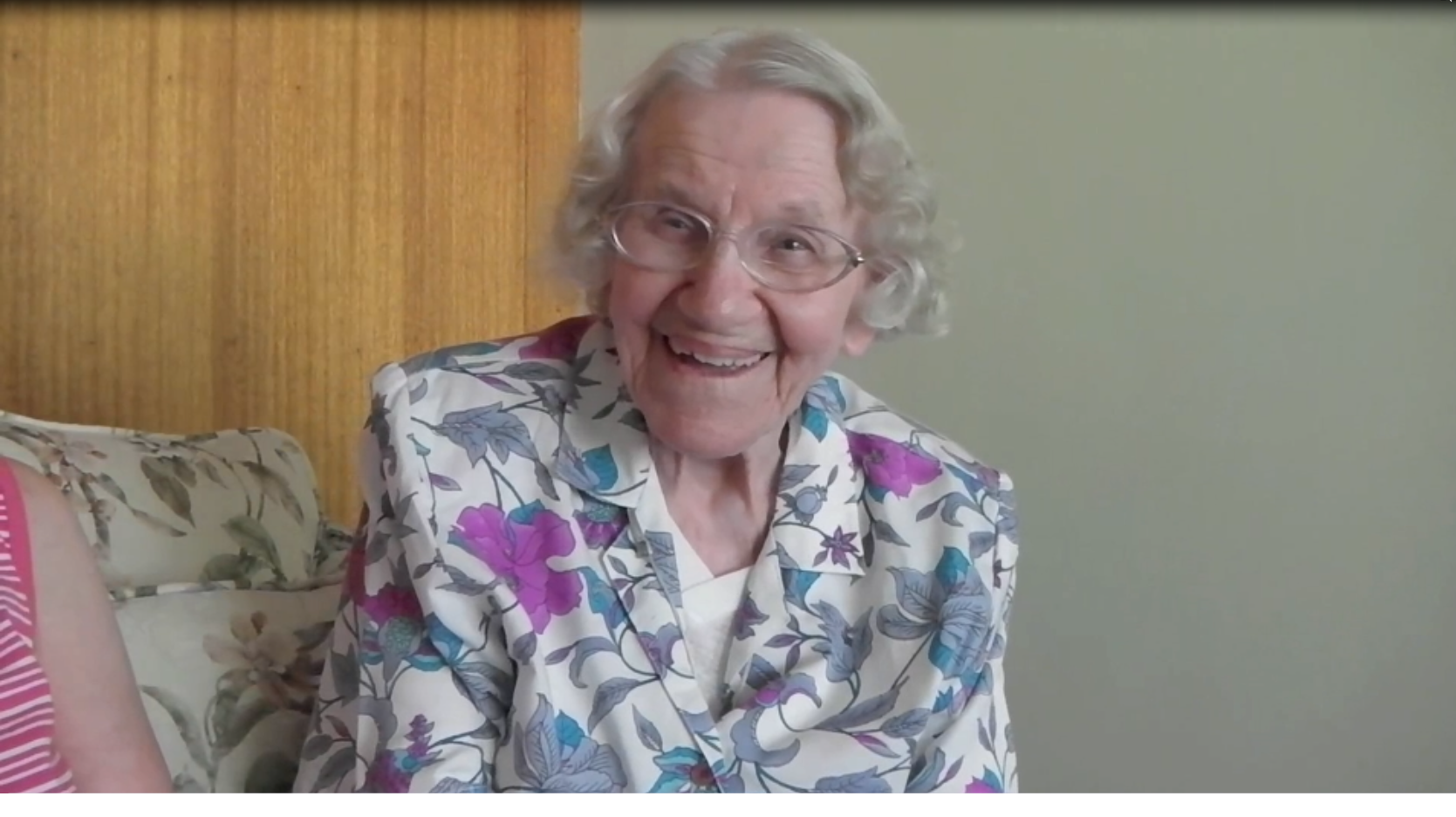
Bessie Lashin: ’46. Right after the War. We moved into this house; we bought it for $6,000.
Bruce Macdonald: Sounds like a good deal.
Bessie Lashin: Well, we sold the other one we had for $3,000. When we came…
B. M.: You need a bigger house? You had seven children?
Bessie Lashin: No, we didn’t have seven children at the time. We just had five; the three came later.
B. M.: Now, when we look across the street, we can see Britannia High School quite clearly.
Bessie Lashin: Yes, we didn’t want to move because it was so close, you know? The children went every morning to the high school. Yeah, well that was built on, that part. The middle part was there.
B. M.: They added the gymnasium. When they tore down a hundred houses, including the houses that used to be across the street.
Bessie Lashin: That’s right.
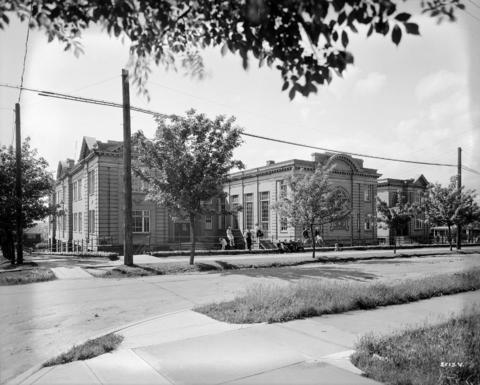
Image credit: Stuart Thomson, public domain
Bessie Lashin: I was born in Saskatchewan. Pelly, Saskatchewan.
B. M.: Was that farming territory? You actually grew up on a farm?
Bessie Lashin: Yes, on a farm. My dad had a wheat farm, but I never wanted to live on a farm. I moved from the farm when I was a teenager.
B. M.: Where did you go?
Bessie Lashin: Winnipeg.
B. M.: Into the big city.
Bessie Lashin: That’s right. A lot of people started leaving and going to Vancouver because the pay was better here, you know? Building ships.
B. M.: Did he work building war ships?
Bessie Lashin: Yes, he did, down here in Vancouver.
B. M.: So what was he doing in the shipyard?
Bessie Lashin: Putting it together. He worked hard.
B. M.: Riveting?
Bessie Lashin: Yes. Riveting. And my two younger sisters came and they worked there too. They got a job there too. The rivetings (ed. rivets) had to be hot, red hot, so they used to put them in pails and they had to carry from there to where the men worked. That’s what their job was. And they’re building planes in… Richmond. War planes.
B. M.: Boeing.
Bessie Lashin: Yes.
B. M.: Yeah, those rivets had to be red hot so they could hammer over the end while they were soft, almost melted. Very noisy work.
Bessie Lashin: Yeah. But you had to work because the pay was good. It was better than anywhere else. I was born in Canada and he was not. When he first came in, he didn’t go straight to the ship yard, because he didn’t know English very well yet. So he was working at a peat plant, because they needed peat moss.
B. M.: In Burns Bog.
Bessie Lashin: That’s right.
B. M.: The Americans came up and they commandeered Burns Bog to build incendiary bombs. When they bombed Dresden it was peat.
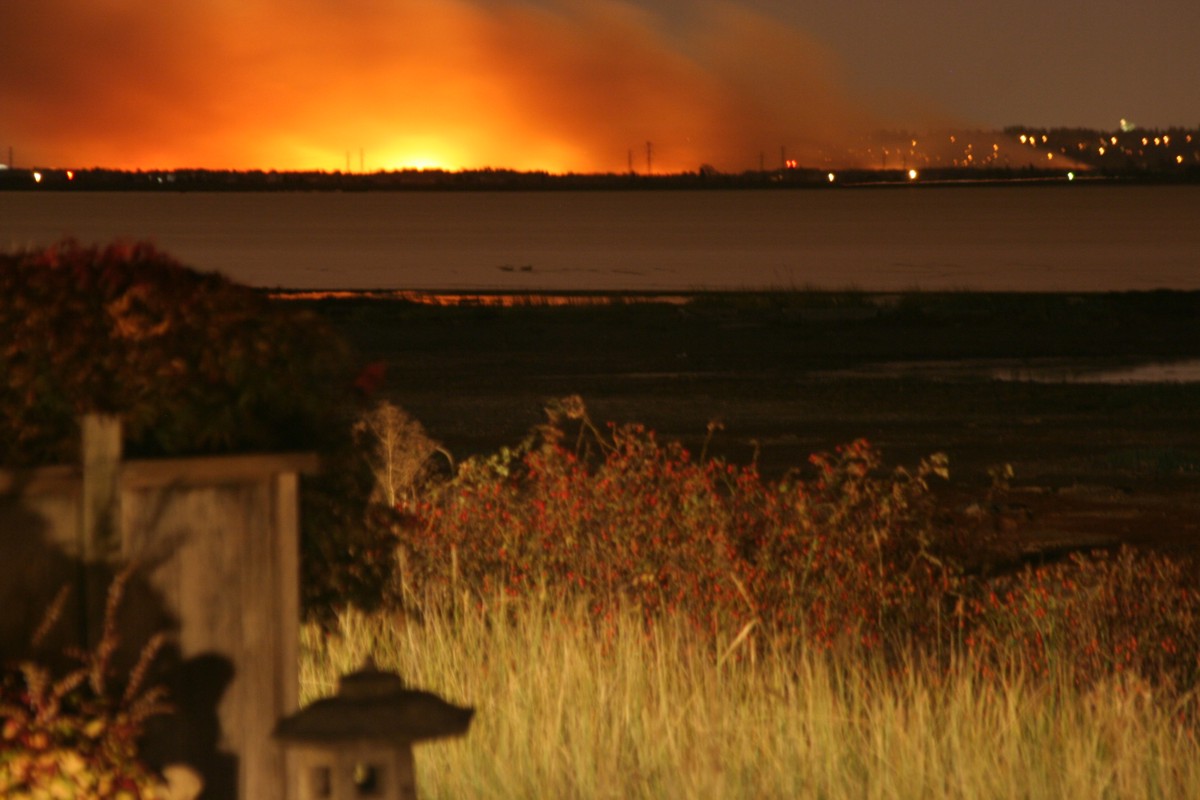
Image credit: SMV, CC, Flickr
Bessie Lashin: He met one of the young men who worked at the shipyard, because my husband bought a car here.
B. M.: Cars were very hard to get—they were not making them.
Bessie Lashin: Bought a second-hand car… He bought a used car. So he wanted a ride because he was working on the shipyard already, and we were living in Delta at the time. So my husband was working on the peat bog. And (the worker) says oh, come with me to the shipyard and ask for a job and you’ll see, you’ll get it right away. And he wasn’t sure, he didn’t want to leave this job because he didn’t want to lose it, you know. But he went, and they didn’t ask him another word; it was so easy for him just to get a job there.
B. M.: At the shipyards here they had 5,000 workers in each shipyard.
Bessie Lashin: Yes, but all the young men went to war, so whoever they could get they took.
B. M.: A lot of women and a lot of young boys.
Bessie Lashin: Yes, boys and girls, you know.
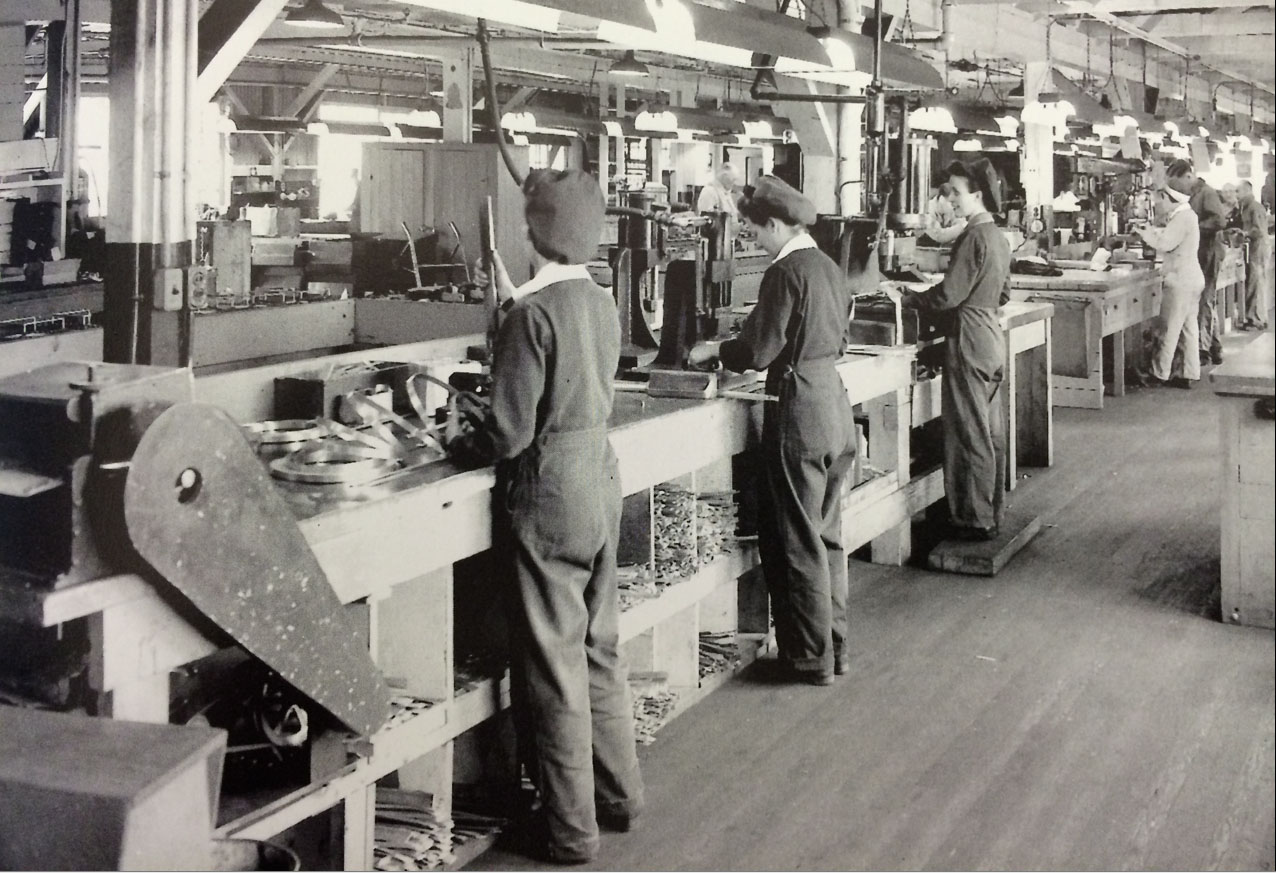
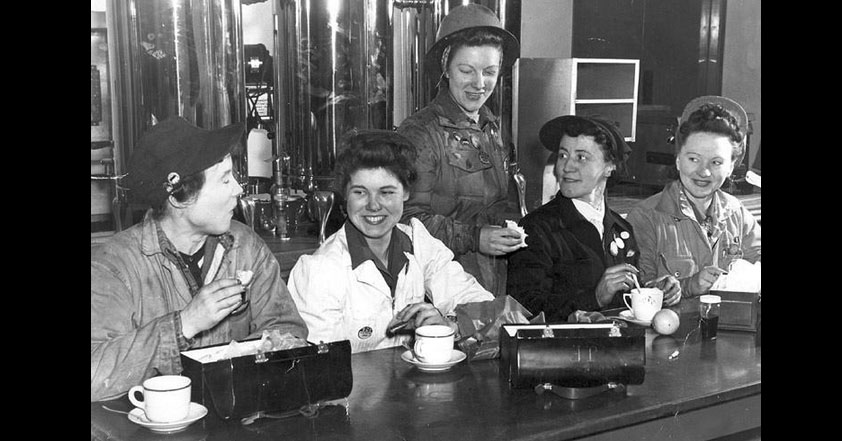
B. M.: And it was dangerous work, as well.
Bessie Lashin: That’s right. And my husband was the only one that would go up to put the Canadian flag on the ship when it was finished. Nobody else would go up there.
B. M.: Afraid of heights.
Bessie Lashin: That’s right. He was never afraid of heights.
B. M.: So that was the last thing they did, put the flag up on the top?
Bessie Lashin: That’s right.
B. M.: Oh, isn’t that interesting. So that must have been quite a contrast—being on the Prairies in the Depression and then being here. Like you say, they’d hire almost anybody.
Bessie Lashin: Yeah. And you know, things were even rationed here.
B. M.: What do you remember about rationing?
Bessie Lashin: Well, canned milk was rationed, No. 1 meat was rationed—beef was rationed—no chicken or fish. Beef—No. 1, you know like steaks… the best meat was all sent overseas. And they stopped building cars, and I guess they stopped building appliances.
B. M.: Oh, yes, everything. Washing machines…
Bessie Lashin: They stopped building them?
B. M.: There was no washing machines. You couldn’t buy a washing machine.
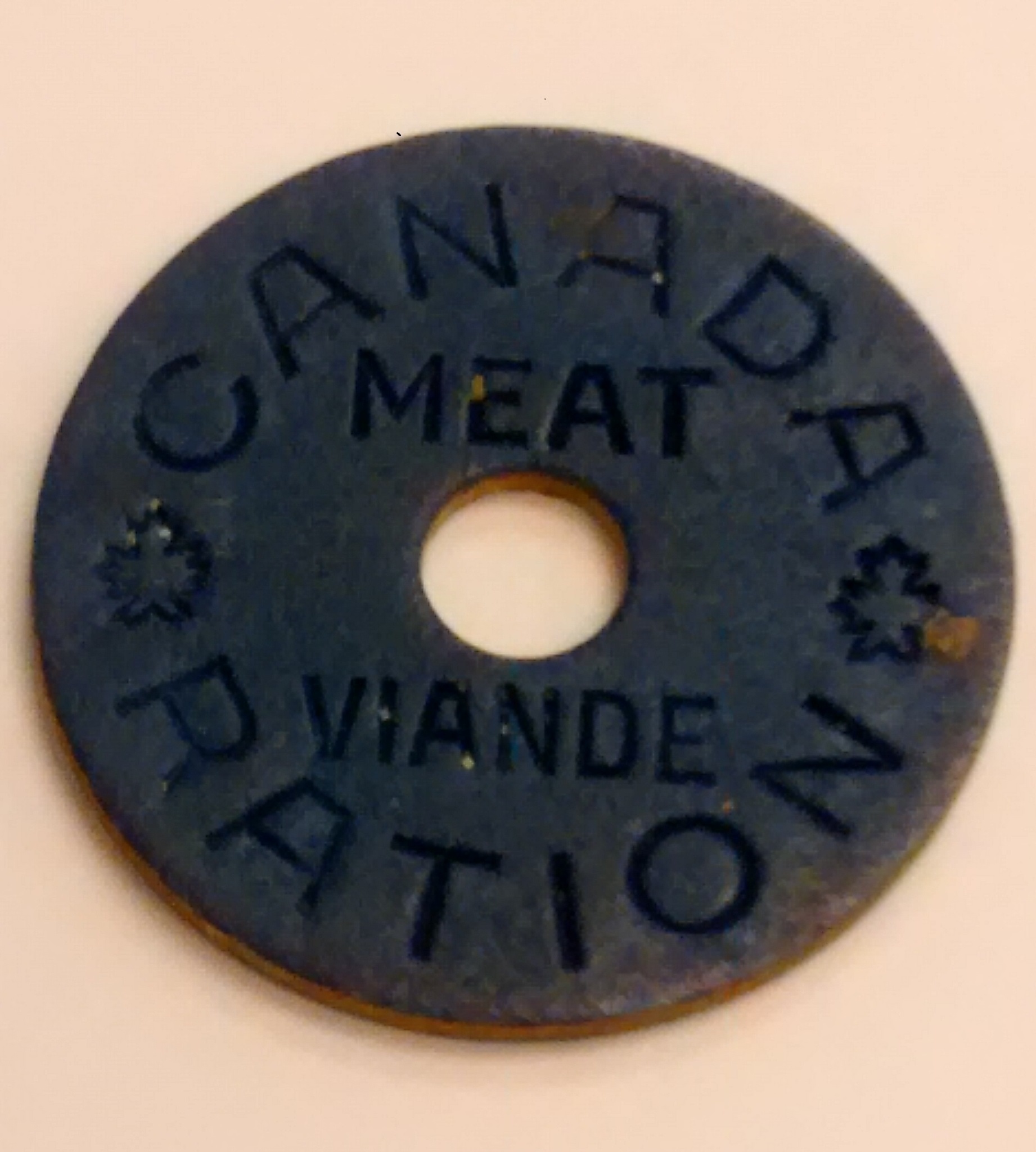
Bessie Lashin: On Williams and Commercial.
B. M.: Oh, where Joe’s Cafe is today? So when you first got here, it was a Rexall Drugs? My brother used to deliver prescriptions for Rexall Drugs.
Bessie Lashin: On a bicycle?
Bessie’s daughter: Ross delivered prescriptions for Rexall.
Bessie Lashin: Yes, but that corner building… there was everything in it already.
B. M.: There was a grocery store and a post office in there.
Bessie Lashin: Then there was a restaurant, and then there was a meat market, then, I don’t know… a restaurant again.
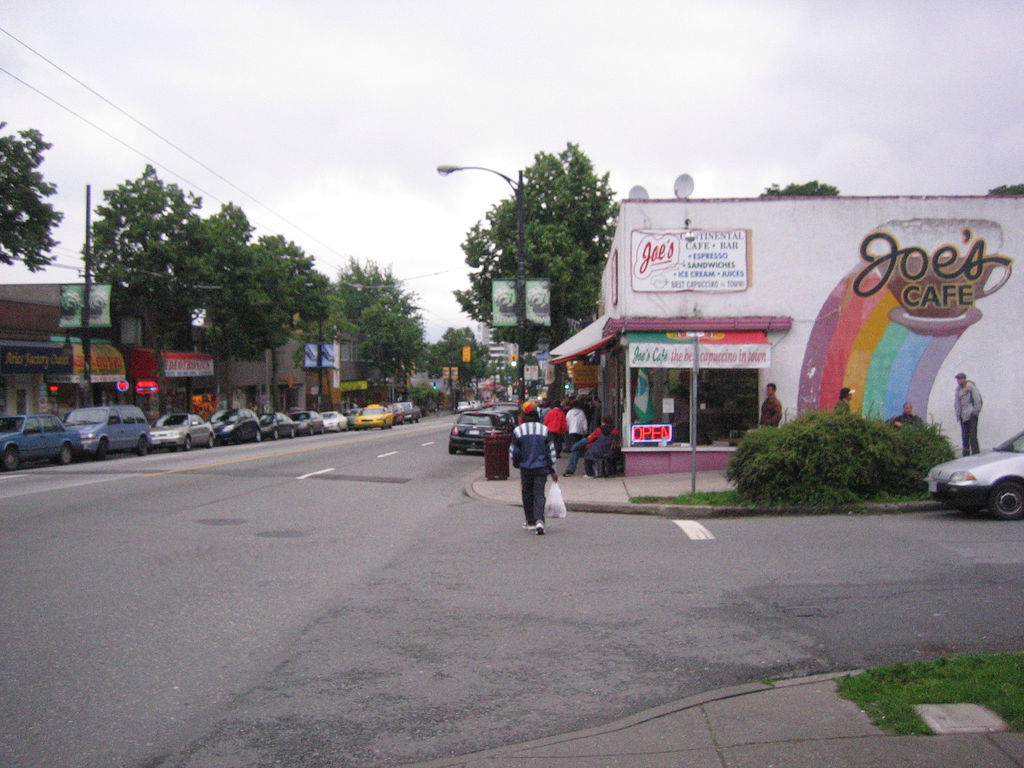
Image credit: Jordan Dawe, CC, Flickr
Story edited by Jade McGregor




Leave a Reply